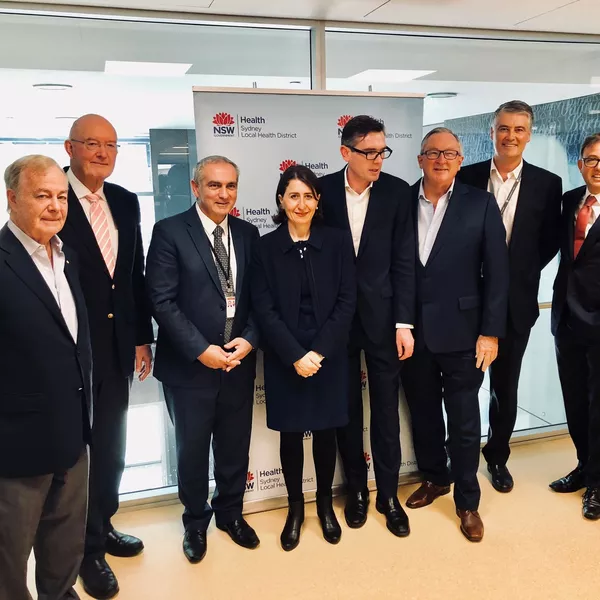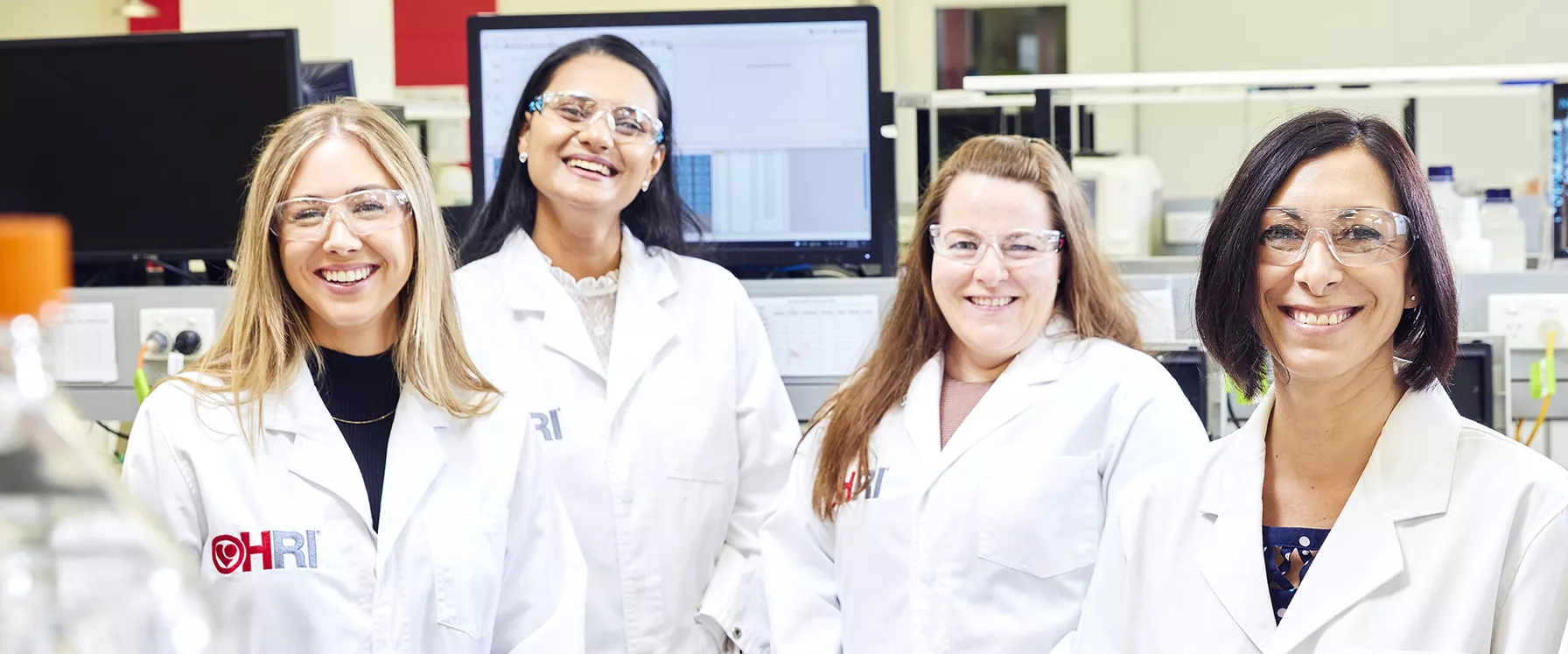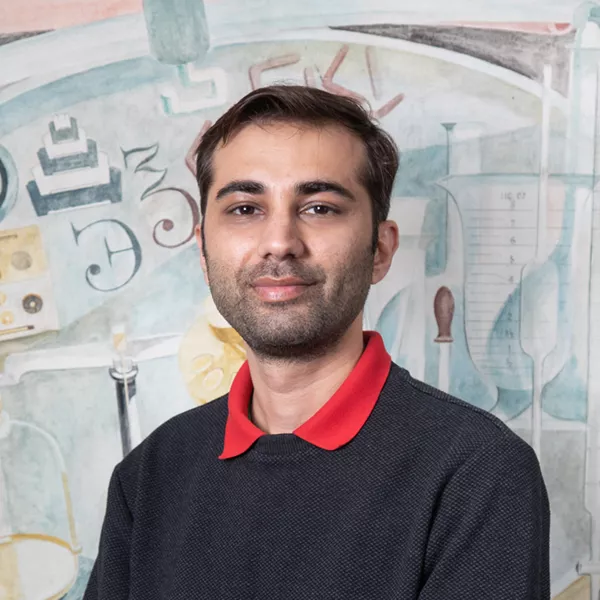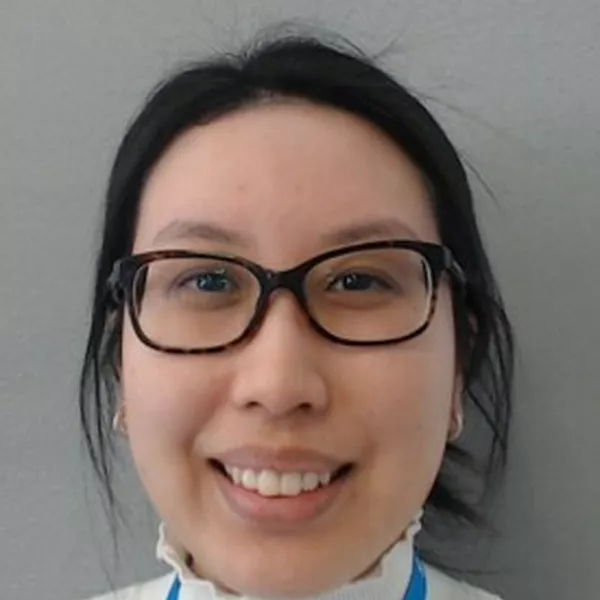
Our objective
Our mission is to understand the pathogenesis of blood vessel disease and its complications. Using this knowledge, we intend to identify novel strategies and therapeutics to reduce the burden of cardiovascular disease (CVD) on people.
Our research uses various models, genetic manipulation, and biochemical and molecular biology tools to dissect how blood vessels become dysregulated, with an emphasis on changes to gene expression, vascular cell adaptation and function in both normal and abnormal settings in the blood vessel wall.
Our impact
Our research aims to understand the molecular, biochemical and cellular mechanisms underlying blood vessel diseases, focusing on atherosclerosis and its complications, including peripheral vascular disease and diabetes. By providing new insights on blood vessel dysregulation in CVD and related pathologies, our work will help uncover new strategies and therapeutics to combat disease, ultimately improving quality of life and life expectancy.
Research interest
The Vascular Complications Group, with the Centre for Peripheral Artery Disease (PAD), undertakes an integrated program of fundamental and translational research to unravel the biology of atherosclerosis and its complications. Our work focuses on elucidating the molecular and cellular mechanisms that drive vascular injury, impaired repair, and disease progression, with the ultimate aim of informing novel strategies for prevention and treatment.
The group’s research spans the full spectrum — from intracellular signalling networks, mitochondrial and metabolic regulation, and vascular cell–cell interactions through to preclinical models, multi-omics profiling, and clinically relevant patient studies.
We work closely with clinicians at RPAH and Concord Hospital to bridge discovery science with clinical application, to accelerate the path from mechanism to intervention.
Key themes and questions
- Plaque biology in peripheral arteries — defining the molecular and structural features that distinguish them from plaques in other vascular beds.
- Sex-specific mechanisms in atherosclerotic disease, including how hormonal changes, influence vascular health.
- Impact of diabetes on vascular function and atherosclerosis, and why diabetes accelerates disease progression and worsens outcomes.
- Endothelial dysfunction and regeneration — investigating how to restore vascular homeostasis and stimulate microvascular growth in ischaemic tissues.
- Mitochondrial function and metabolism in cardiovascular disease, and how energy failure in vascular cells contributes to pathology.
- Novel therapeutic strategies to promote vascular repair and prevent adverse outcomes like limb loss in peripheral artery disease.
Methodologies
We use a broad range of methods and technologies including cell culture, molecular and cellular biology, preclinical models (including but not limited to atherosclerosis, PAD, diabetes), OMICs (single cell RNA sequencing, lipidomics, metabolomics), ELISA and imaging (Laser Doppler, Vevo ultrasound). Through the Centre for PAD, we also have access to human atherosclerotic plaque and amputation tissues, enabling direct translational studies linking laboratory findings to clinical disease.
Selected publications
Mary M Kavurma et al. A hidden problem: peripheral artery disease in women. Eur Heart J Qual Care Clin Outcomes. 2023 Mar 8:qcad011. doi: 10.1093/ehjqcco/qcad011
Siân P Cartland et al. Vascular transcriptome landscape of Trail-/- mice: implications and therapeutic strategies for diabetic vascular disease. Faseb J, 2020 Jul;34(7):9547-9562. doi: 10.1096/fj.201902785R.
Katherine Kott, Elija Genetzakis, Michael P Gray, David S Celermajer, Helen McGuire, Stuart M Grieve, Steve Vernon, Siân P Cartland, Mary M Kavurma, Gemma A Figtree. Investigating circulating levels of TRAIL, IL-18 and OPG as biomarkers for the detection of stable coronary artery disease. Biomolecules. 2024 Sep 4;14(9):1119. doi: 10.3390/biom14091119.
Siân P Cartland#, Manisha S Patil#, Lauren Boccanfuso, Elaina Kelland, Malathi Dona, Elaina Kelland, Christopher Stanley, Pradeep Manuneedhi Cholan, Malathi Dona, Ralph Patrick, Jordan McGrath, Peter Su, Imala Alwis, Ruth Ganss, Jospeh Powell, Richard Harvey, Alexander Pinto, Thomas Griffith, Jacky Loa, Sarah J Aitken David A Robinson, Sanjay Patel, Mary M Kavurma. The generation of stable microvessels in ischemia is mediated by endothelial-derived TRAIL. Science Advances 2024 Oct 4;10(40):eadn8760. doi: 10.1126/sciadv.adn8760. Epub 2024 Oct 4. # equal authorship.
Xin Tracy Liu; Yu Huang; Da Liu; Long Hoa Chung; Yingxin Celia Jiang; Xingxing Daisy Han; Jinbiao Chen; Paul Coleman; Ka Ka Ting; Collin Tran; Yinan Zhao; Yingying Su; Claude Vincent Dennis; Atul Bhatnagar; Ken Liu; Anthony Simon Don; Mark Douglas Gorrell; Shubiao Zhang; Michael Murray; Mathew Alexander Vadas; Mary Meltem Kavurma; Geoffrey William McCaughan; Jennifer Ruth Gamble. Targeting SphK1/S1P/PFKFB3-Mediated Energy Supply for Tumor Angiogenesis to Suppress Hepatocellular Carcinoma Progression. J Transl Med. 2024 Jan 10;22(1):43. doi: 10.1186/s12967-023-04830-z.
Ravindran D, et al. Broad-spectrum Chemokine Inhibition Blocks Inflammation-Induced Angiogenesis, but Preserves Ischemia-Driven Angiogenesis. FASEB J. 2019 Dec. 33 (12), 13423-13434. DOI: 10.1096/fj.201900232RR
Nash M, et al. TNF superfamily members in ischaemic vascular diseases. Cardiovasc Res. 2019 Feb 28. pii: cvz042. doi: 10.1093/cvr/cvz042.
Cartland SP, et al. TRAIL-expressing monocyte/macrophages are critical for reducing inflammation and atherosclerosis. iScience, 2019 Feb 22;12:41-52. doi: 10.1016/j.isci.2018.12.037. Epub 2019 Jan 4.
Cholan P, et al. TRAIL protects against endothelial dysfunction in vivo and inhibits angiotensin-II induced oxidative stress in vascular endothelial cells in vitro. Free Radic Biol Med. 2018 Oct;126:341-349. doi: 10.1016/j.freeradbiomed.2018.08.031. Epub 2018 Aug 27.
Cholan P, et al. NADPH Oxidases, angiogenesis and peripheral artery disease. Antioxidants (2017).;6(3). pii: E56. doi: 10.3390/antiox6030056.
Cartland SP, et al. Non-alcoholic fatty liver disease is exacerbated with TRAIL deletion in mice, associating with vascular inflammation and insulin resistance. Sci Reports (2017):7(1):1898.
Media/Press
Kavurma: “Gender lens in heart research”, Women’s Agenda, April 2024
Kavurma: “New Centre for PAD”, ABC news breakfast, June 2024
Kavurma: “Unmasking a silent killer: new Centre for peripheral artery disease”, Channel 9 news, July 2024
Cartland: “Cardiovascular medical breakthrough”, 7 news Dubbo
Cartland: soundbites, 2GB and 2SM; syndicated on 20 radio stations, Oct 2024
Cartland: “Cancer drug offers new hope for peripheral artery disease”, New Daily, Nov 2024
Kavurma: “Exciting new discovery that could hold the key to stopping PAD”, 2GB Healthy Living, Dec 2024
Current Research Projects
- Sex differences in peripheral artery diseases.
- Understanding mitochondrial endothelial function and how its dysfunction impacts vascular disease.
- Uncovering variations in atherosclerosis across different vascular beds.
The team
Projects
News
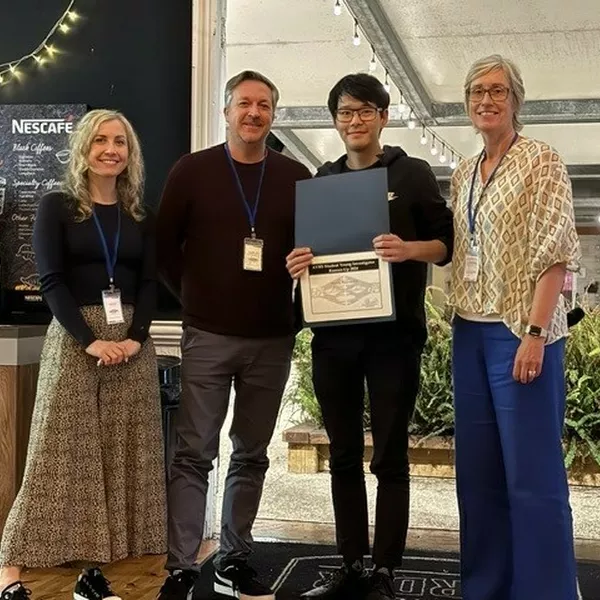
Researchers gather for AVBS 2024 conference
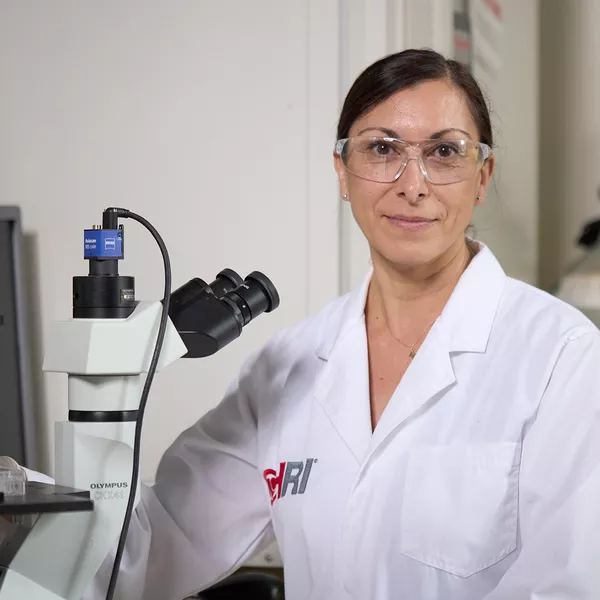
Unmasking a silent killer: New Centre for Peripheral Artery Disease
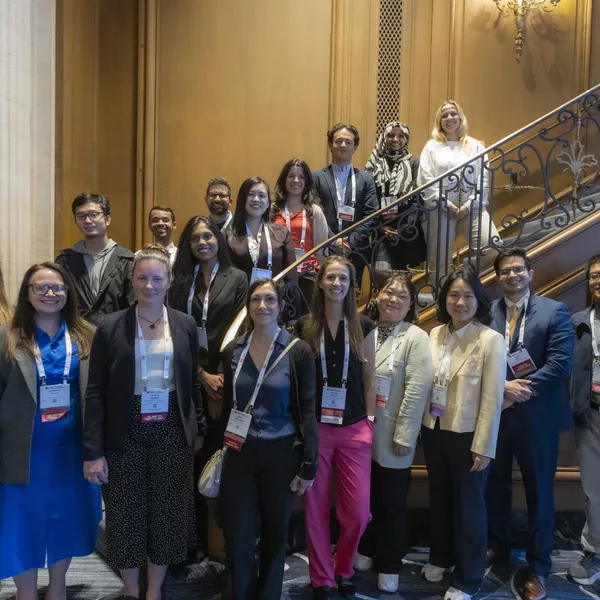
Assoc Prof Mary Kavurma and team win prestigious international award

HRI researchers honoured as finalists for prestigious mentor award

HRI awarded three prestigious NHMRC grants
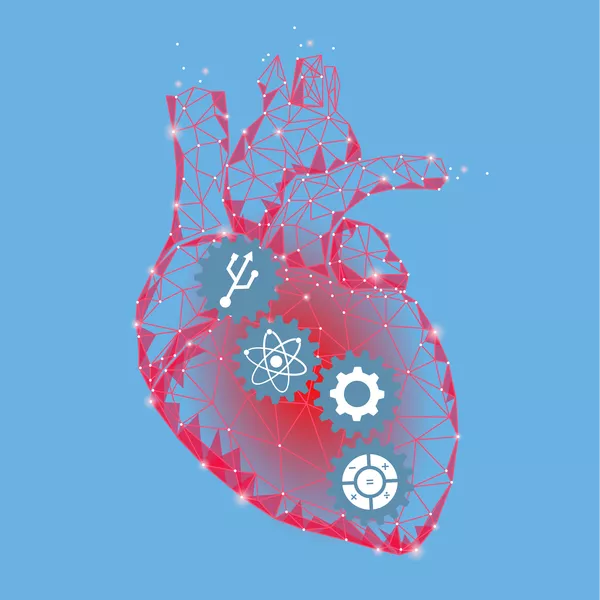
Leading researchers gather at the 2023 Sydney Cardiovascular Symposium
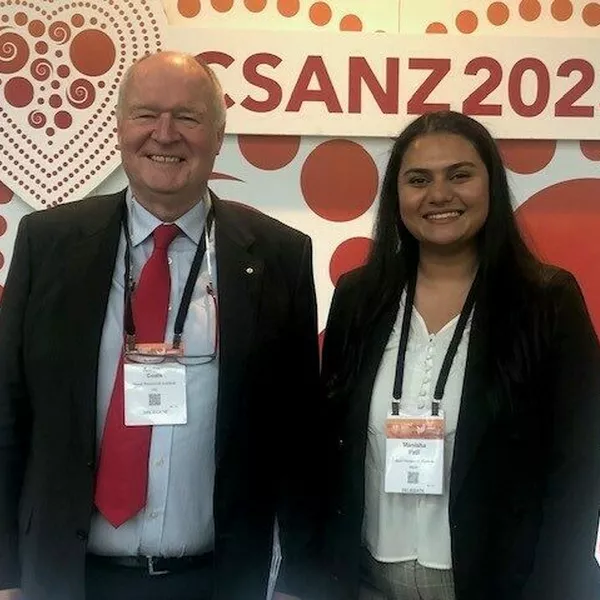
HRI members present at CSANZ Annual Scientific Meeting
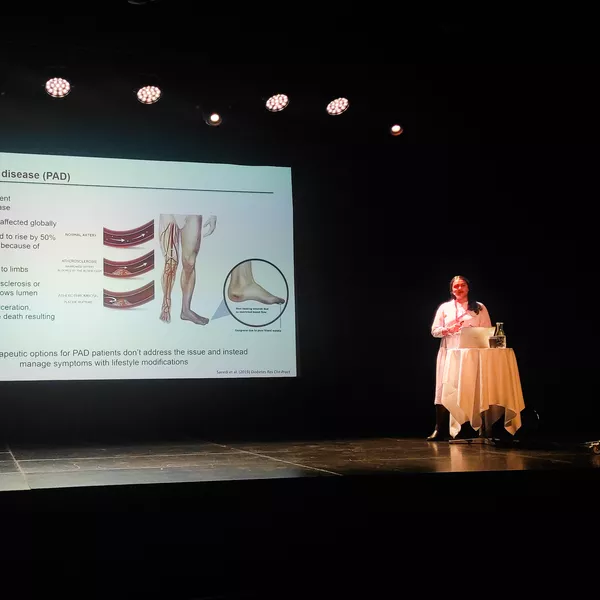
Is it possible to restore circulation in someone with peripheral artery disease?
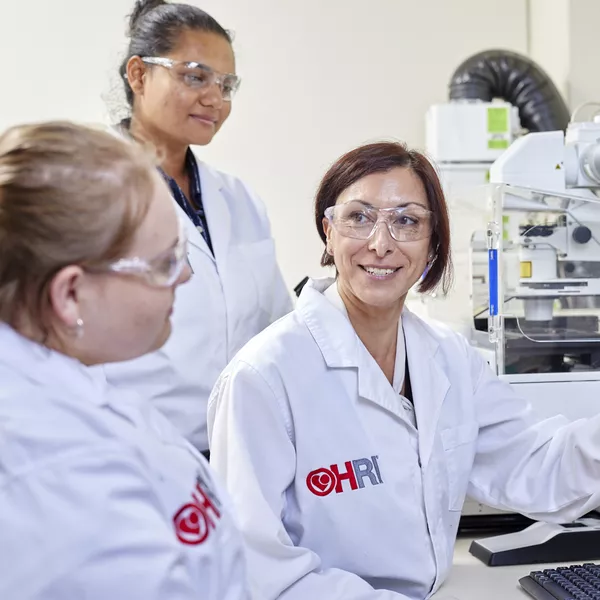
How a pain in your leg could be just as fatal as a pain in your chest

Research recommendations to prevent limb amputation
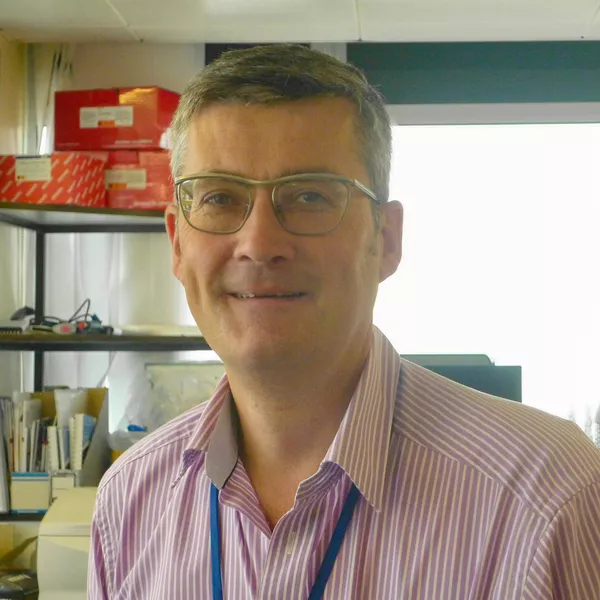
Identifying new pathways to treat cardiovascular disease

Dr Mary Kavurma awarded ACvA Research Catalyst Grant
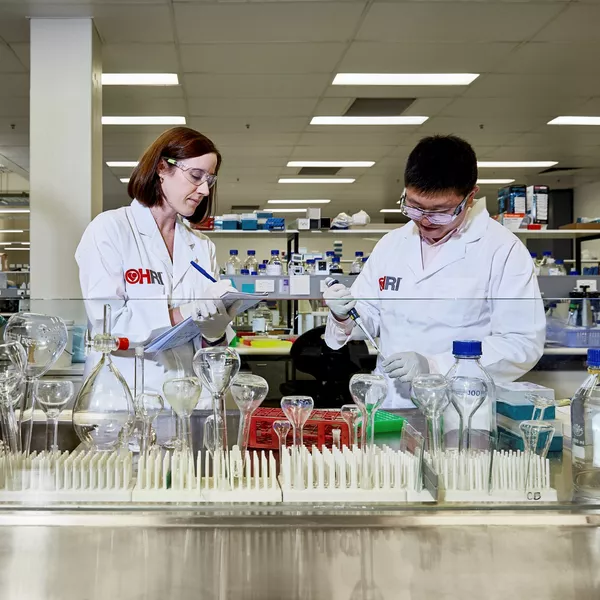
HRI undertakes critical research into COVID-19-related heart disease
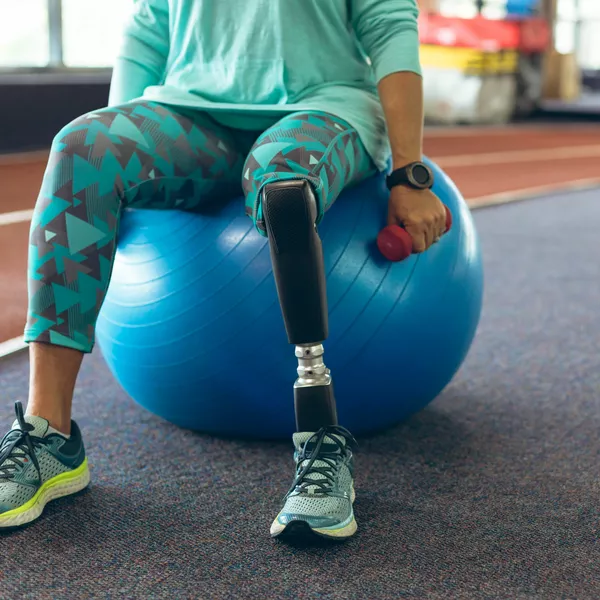
Help prevent limb amputation
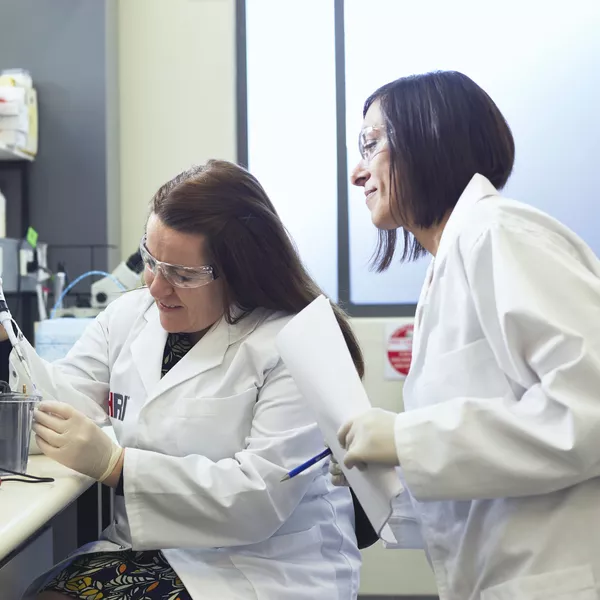
Dr Mary Kavurma awarded NHMRC Grant
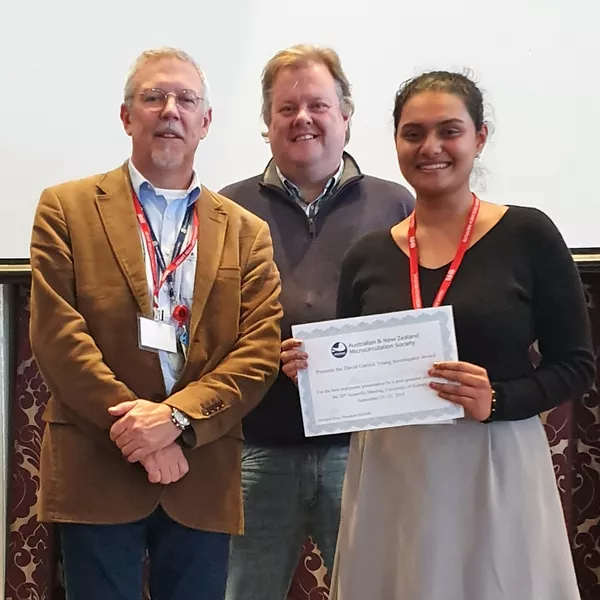
HRI’s Manisha Patel wins Best Poster Award
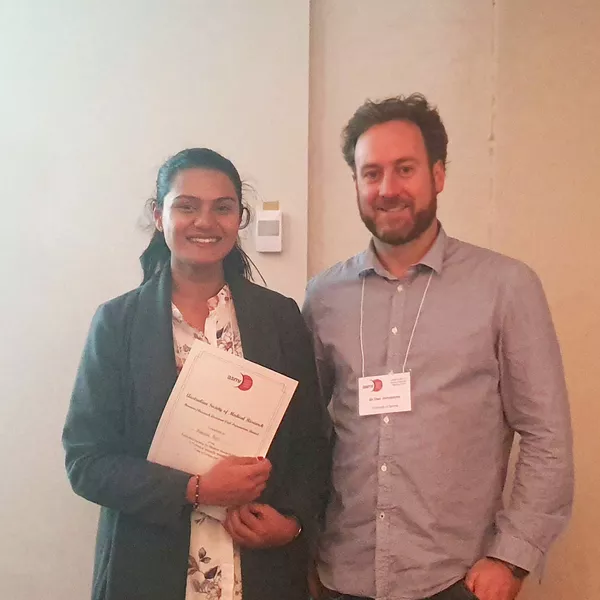
HRI awarded at ASMR meeting
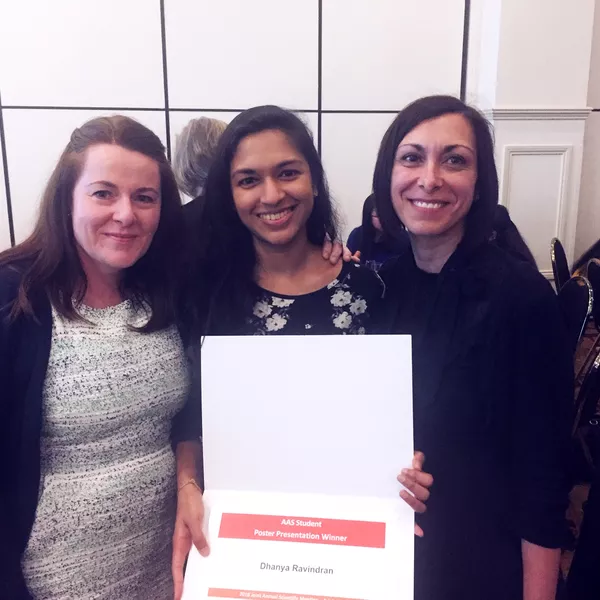
HRI awarded at Annual Scientific Meeting

Meet our Illuminate Award winners

A celebration of science: Illuminate
